Best and Worst Dog Breeds For Seniors
1 Good for you: Shih Tzu
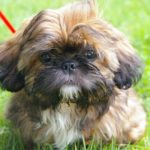
Known as the “Lion Dog”, the Shih Tzu is ideal for the elderly because of its loyalty, friendly personality and easy-going character. This breed of dog requires very little exercise, as it only snuggles up against you on the couch.
Despite this and its small size, the Shih Tzu is an excellent guard dog. Whether you are renting an apartment or own a home, the Shih Tzu is a lively and adorable breed that will adapt to your lifestyle.
2 Good for you: Bolognese Bichon

The Bolognese bichon is an excellent breed of dog for the elderly. Its fur is like plush, so this breed requires little grooming maintenance. The owners like Bolognese bichon because it doesn’t shed much, it’s smart and it’s not difficult to train and responds very well to obedience classes.
The calm and quiet nature of the breed makes this dog easy to live in apartments and other small spaces, especially where noise can be a concern.
3 Good for you: Goldendoodle

The Goldendoodle is a dog breed created from two popular and affectionate breeds, the poodle and the Golden Retriever.
If you want a dog that will get you out and moving, the Goldendoodle is a good choice because it needs daily exercise to expend its energy. Very intelligent and endowed with a playful nature, this dog will be your faithful companion of love.
4 Not for you: Dalmatian
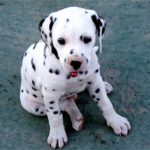
Dalmatians are high energy dogs that require a lot of exercise. They’re also quite destructive indoors if you don’t give them enough outdoor time.
Finally, they can be stubborn and difficult to train as well as fearful or aggressive, depending on their lineage. They are better suited for families with younger children or college students.
5 Good for you: Beagle

The Beagles have a reputation for being noisy, but many senior care experts have ranked these friendly dogs as one of the best breeds for seniors.
Beagles like to play, which will keep you active and have relatively low grooming needs. The Beagle is also great with children, so you don’t have to worry about not getting along with your grandchildren when hosting get-togethers.
6 Good for you: Pomeranian
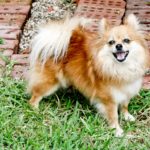
The Pomeranian is a lively and affectionate dog, small in size and with a big heart. Pomeranians live well in an apartment or other small space and are fiercely devoted to their owners.
Although they are fluffy, they do not need to be groomed thoroughly and only require regular brushing. If training is required, the breed’s intelligence should allow them to enter your orders quickly so you won’t have to invest in too many obedience classes.
7 Good for you: Pug
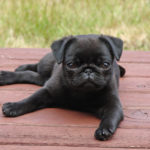
Pugs are described as the perfect dog for people who spend most of their time on the couch, so this breed is well suited for older people who can’t get out and exercise as much as they would like.
Pugs adapt very quickly to most situations and require little grooming. These cheerful little dogs are ideal pets and will be a hit in a retirement home.
8 Not for you: Border Collie

For the elderly, trying to manage alone this type of dog at home is probably more than they can handle. First, if they are not out having fun, they will have fun at home, creating havoc.
Another reason is they need a lot of grooming. The mounds of hair that accumulate around the house are not a good look, either for the owner or the dog. They are good for people with a large property and lots of energy.
9 Good for you: Mixed breeds

You don’t need to adopt or buy a purebred dog to find the perfect companion. Many dog experts recommend that seniors go to the local shelter to see if there is a suitable mixed breed dog.
In addition to being a great act of charity, when dogs enter the shelter, their personality, care needs, and other qualities are checked, and the handlers seek to place the dog with the right person. Better yet, you won’t need to do the training a puppy would need.
10 Good for you: Yorkshire terrier

The Yorkshire Terrier is a small, gentle dog that lives from 13 to 20 years on average…
You can often find this breed of a dog living in rented apartments or assisted living centers because they require little maintenance – they only need daily brushing. Exercise is not really a need for Yorkie, and their favorite place will probably be your knees.
11 Good for you: French Bulldog

French bulldogs are adorable with their big ears and adorable personalities. Canine experts say they are lively and loving.
The French bulldog is an excellent pocket dog and goes well with small spaces such as apartments or other small real estates. This breed of dog requires little exercise and maintenance.
12 Not for you: Australian Shepherd

Up next, Australian Shepherds demand attention for 12 hours a day to be happy and are extremely active.
Unless you have good health insurance and want to test your heart’s capacities, we suggest you pass on that breed. After all, is that really how you want to live your retirement?
13 Good for you: Welsh Corgi Pembroke

If you are an older person and you want a lively little dog that won’t cause you any problems, the Welsh Corgi Pembroke is perfect. Not only are these dogs adorable with their squatting bodies and giant ears, but they are also easy to live with and ideal for apartment occupants.
Welsh Corgi Pembroke is intelligent and has been a royal favorite for years. Be aware that they are active dogs and should exercise frequently outdoors so you might want to go shopping for some toys.
14 Good for you: Otterhound
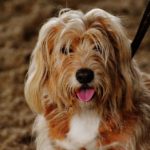
The Otterhound is not as well known as the other dogs on this list, but that’s okay because it’s an excellent breed for older people.
The breed has a life expectancy of about 12 years and requires a moderate amount of regular exercise. You will obtain a faithful, loving, intelligent and independent companion with whom you will love spending most of your time by choosing this breed of dog.
15 Good for you: Poodle
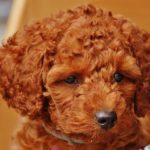
Poodles are great dogs for anyone and are particularly popular with the elderly. The breed is one of the most intelligent and will provide you with a loyal companion.
Their gentle and loving nature and ability to adapt to any space makes them good choices for any senior. If you have allergies don’t worry about spending all your money on antihistamines thanks to its hypoallergenic nature.
16 Not for you: Rottweiler
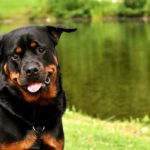
Rottweilers are large, powerful dogs requiring firm leadership and training.
In addition, they are unsuitable for apartment living and thrive on larger real estate.
17 Good for you: Lhasa Apso
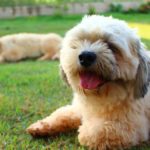
The Lhasa Apso is ideal for apartments and small spaces, especially if you are concerned about grooming needs. This breed of dog has an average life span of 14 years.
Like the other small dogs on our list, this animal is loyal and affectionate. The Lhasa Apso is ideal for an older person because it is independent, but wants your attention, so you get the best of both worlds.
18 Good for you: Japanese Spaniel

The Japanese Spaniel does not have excessive physical activity needs and is easy to groom, requiring only one brush per week.
It is also a less “barking” dog than other breeds. You can let your Japanese spaniel have a little fun in the yard or in the park, and he will be happy, but he also likes to come back directly to your lap.
19 Good for you: Italian greyhound

The greyhound is a large dog, but if you like the look of a greyhound and want something more manageable, the Italian greyhound may be the perfect breed for you.
Italian greyhounds are affectionately called “Iggies” and have a lifespan of 12 to 15 years. These friendly dogs are ideal for apartments or small houses, as they only need one hour of exercise a day.
20 Not for you: Irish Setter

They are very energetic dogs that are difficult to train and require a lot of maintenance.
Moreover, you can only rarely leave him alone and he is in poor health.
